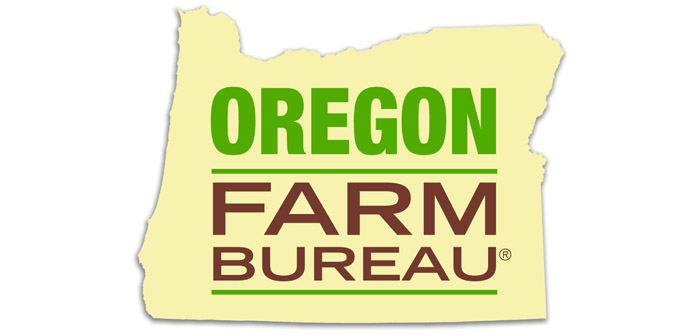In recognition of National Ag Day, March 22, the Oregon Farm Bureau invites readers to remember the importance of farmers and ranchers to their daily lives.
Because of the productivity, efficiency and reliability of agriculture producers, many of us don’t have to give a second thought to where our food comes from. As long as the grocery store shelves are stocked, the origin of food is the furthest thing from our minds.
So, who are Oregon’s farmers and ranchers?
There are 67,595 farmers and ranchers in Oregon, according to the latest U.S. Census of Agriculture. Their average age is 57.9 years and 44 percent are women. Despite representing less than two percent of the state population, these families contribute enormously to Oregon’s economy, landscape and quality of life.
While inflation has driven up the cost of food, Oregon’s farmers and ranchers are not getting richer. After accounting for input costs, ag producers receive an average of only eight cents out of every dollar spent on food at home and away from home. The rest goes for costs beyond the farm gate: wages and materials for production, processing, marketing, transportation and distribution.
As “price-takers, not price-makers,” most farmers and ranchers also have no control of the price they get for their products. A farmer is not like a shoe retailer who can simply increase a price tag in a store to offset increased supply costs. These are businesses that sell their goods through domestic or international commodity markets, which determine the product’s price. Some farmers don’t know until months after delivery what they’ll get for their harvest.
Another factor that distinguishes agriculture from other industries is the fact that 97 percent of Oregon farms and ranches are family-owned and operated. What other sector can boast that level of family ownership? The Oregon Century Farm & Ranch Program has recognized 1,247 farms as remaining operational and in the same family for at least 100 years, and it has bestowed 47 farms with a Sesquicentennial award for reaching the 150-year mark.
Few jobs involve wearing so many hats. Besides tending to their crops and animals, farmers and ranchers are business owners, marketers, agronomists, climate scientists, mechanics, breeding specialists, pest experts, purchasing officers, market forecasters, water administrators, accountants, human resources leads, risk analysts and 24/7/365 optimists at the same time. Most farmers can’t afford to hire consultants to do these things for them; they simply figure them out and do it themselves.
Farmers are also innovators. For a sector that’s based on the most basic of components — soil, water, sunlight — farmers and ranchers are frequently early adaptors to technology. They’re continually looking to produce more with less: less water, less fertilizer, fewer pesticides, less fuel. This means using drones to check field health, smartphone-controlled irrigation systems, GPS-driven tractors or sophisticated sprayers that control chemicals down to the droplet.
And whether a farm is organic, conventional, biotech, no-tech, or a combination thereof, ag producers have more that unites them than divides them.
One commonality is an unshakeable respect for, and love of, the land. When your livelihood directly depends upon healthy soil and ample water, you do what it takes to preserve it. To squander natural resources or harm the environment would make no sense, especially when you live where you work. It also would be against the law.
Another binding trait is immense pride in their product. While there are innumerable state and federal laws that ensure food safety, no one cares more about the quality of the end product than does the family who raised it. This goes for nonedible crops, too, like nursery products, hay, grass seed and Christmas trees. The unparalleled commitment to quality has elevated the international status of Oregon agriculture, and consumers around the world seek out Oregon-grown blueberries, wheat and grass-straw.
A third shared value is love of the lifestyle. Talk with farmers and ranchers about what they like most about their jobs and you’ll hear “being your own boss,” “being outdoors,” “growing something from nothing” and “every day is different.”
This year March 22 is National Ag Day, but we at Oregon Farm Bureau urge you to remember and thank farmers and ranchers all year long.




